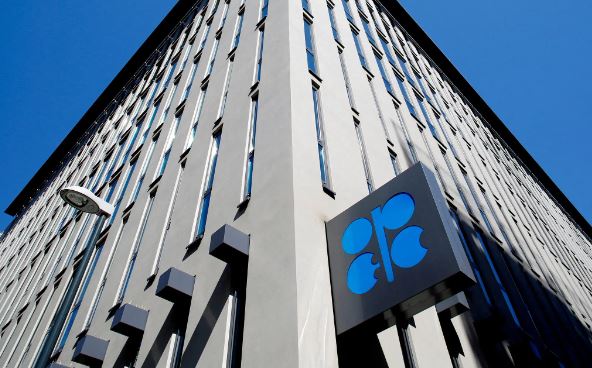Saudi Arabia, as the de facto leader of the Organization of the Petroleum Exporting Countries (OPEC), announced on Sunday its decision to extend cuts in oil production through June. This move, also adopted by Saudi allies such as Kuwait and the United Arab Emirates, aims to stabilize oil markets amidst projections of potential oversupply in the first half of the year.
The decision to maintain output cuts comes as no surprise and is viewed as a precautionary measure to prevent a possible decline in oil prices. Analysts anticipate that without continued production cuts, oil prices could face downward pressure due to an excess of supply over demand.
In its statement carried by the official Saudi Press Agency, Saudi Arabia emphasized the importance of supporting market stability and balance by curbing oil production. The kingdom revealed its plan to gradually return the one million barrels per day cut from July, contingent upon market conditions.
Giacomo Romeo, an analyst at Jefferies investment bank, interpreted the decision as a signal that OPEC+ is not rushing to restore supplies to previous levels. Saudi Arabia, despite its capacity for higher production, is deliberately selling less oil amid rising output from non-OPEC countries like the United States and Guyana. Additionally, Russia, an OPEC+ member, has maintained higher oil production levels than anticipated following its conflict with Ukraine in 2022.
Furthermore, modest growth in oil demand is expected this year, estimated at approximately 1.5 million barrels per day, or 1.5% of global demand, according to Goldman Sachs.
Sunday’s announcement builds upon a previous decision made in January by Saudi Arabia to scale back plans to increase production capacity at Saudi Aramco, the state oil giant. The kingdom’s move to maintain a tight oil market aligns with its strategic objectives, as indicated by analysts at Goldman Sachs.
Moreover, Saudi Arabia seems to have concluded that investing billions to significantly boost production levels beyond its current output of nine million barrels per day may not be worthwhile at present.
Although concerns about potential spillover effects from the conflict between Israel and Gaza have contributed to recent oil price increases, analysts note that actual disruptions to oil production have yet to occur. Brent crude, the international benchmark, reached approximately $83.55 per barrel by the end of last week, marking its highest level in about four months.
The incremental price gains are attributed to voluntary production cuts by OPEC and its allies rather than any tangible supply disruptions caused by geopolitical tensions.
In November, several OPEC+ members, including the United Arab Emirates, Iraq, and Kuwait, joined Saudi Arabia in agreeing to implement additional production cuts. Analysts believe that the millions of barrels per day withheld from the market by these countries could serve as a buffer against potential disruptions, ensuring adequate supply during emergencies.
Overall, Saudi Arabia’s decision to extend production cuts underscores its commitment to stabilizing oil markets amidst evolving demand dynamics and geopolitical uncertainties. By exercising caution and maintaining a disciplined approach to production management, OPEC and its allies seek to mitigate potential price volatility and safeguard the interests of oil-producing nations.

